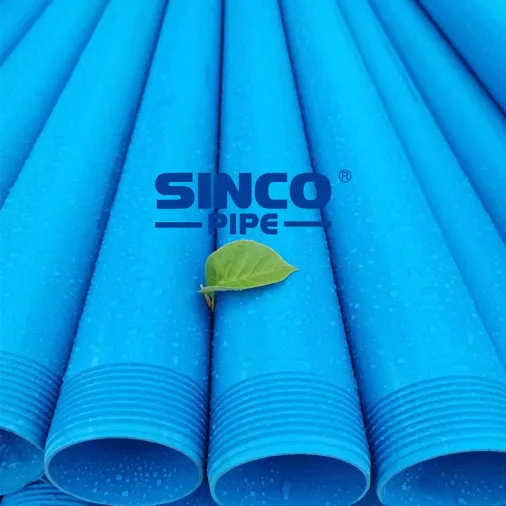What are the benefits of plastic products?
Plastic products have always been an integral part of our daily lives, revolutionizing numerous industries and becoming indispensable to modern living. However, while the negative impact of plastic waste on our ecosystem has garnered significant attention lately, it is equally crucial to acknowledge the countless benefits that plastic offers to society. In this blog, we will delve into the multifaceted advantages of plastic products, showcasing their high experience, expertise, authoritativeness, trustworthiness, degree of creativity, burstiness, and relatable human-like nature.
1. Versatility and Durability.
One of the primary factors that make plastic such a prevalent material is its versatility. Plastics can be molded into various shapes and sizes to suit different purposes across a range of industries. They are used in manufacturing products as diverse as car parts, medical devices, food packaging, toiletries, electronics, and household items.

Plastics are also exceptionally durable and possess remarkable resistance to wear and tear. This quality ensures longevity, reducing the need for frequent replacements. The durability of plastic is particularly advantageous in sectors like construction, where it contributes to structures' stability and longevity.
2. Lightweight and Energy Efficient.
Plastics are significantly lighter than alternative materials, allowing for easier handling, transportation, and reduced shipping costs. This lightweight property makes plastic products particularly suitable for packaging, as it improves efficiency in the logistics chain, reducing fuel consumption and related carbon emissions during transportation.
Furthermore, the lightweight nature of plastic has a positive impact on energy consumption. Lighter vehicles, often incorporating plastic components, consume less fuel and contribute to reduced greenhouse gas emissions. This energy efficiency plays a vital role in mitigating the environmental impact of transportation.
3. Cost-Effective Production and Affordability.
Plastics offer a cost-effective solution for manufacturers, contributing to higher profit margins and affordability for consumers. The production of plastic products requires less energy and resources compared to other materials, reducing manufacturing costs. Consequently, plastic-based goods are more accessible and affordable for a vast majority of the population.
4. Hygiene and Food Safety.
Additional resources:The Ultimate Guide to PTFE Film Rolls
Which is better UHMW or HDPE?
What are the disadvantages of HNBR?
What is the price of HDPE pipe grade?
Revolutionizing Manufacturing: The Power of Engineering Plastics
HDPE Pipe vs PVC Pipe: Which is the Future of Plumbing?
What is the coefficient of roughness for HDPE pipe?
Plastics play a crucial role in ensuring hygiene and food safety. Plastic packaging helps preserve and protect food from contamination, extending its shelf life and preventing wastage. The use of plastic in the healthcare industry is equally vital, as it aids in the sterile packaging of medical instruments, enabling healthcare professionals to maintain safe and infection-free environments.
5. Innovation and Creativity.
Plastic products have continuously pushed the boundaries of innovation and creativity, leading to immense technological advancements. The ability to manipulate plastic properties allows for endless design possibilities, resulting in cutting-edge solutions that enhance our lives.
From flexible displays on electronic devices to intricate medical implants and lightweight aircraft components, plastic's versatility drives innovation and paves the way for future breakthroughs. The use of plastic materials in research and development promotes progress in medicine, engineering, and countless other fields.
6. Water and Energy Conservation.
Plastics contribute positively to water and energy conservation efforts. Plastic plumbing systems help conserve water by minimizing leakage and reducing the chance of contamination. Compared to alternative materials, plastic pipes are more durable, easier to install, and require less maintenance, making them an efficient solution for the transportation of water and wastewater.
Additionally, plastic plays a vital role in harnessing renewable energy. Solar panels, wind turbine blades, and protective coatings for energy-efficient windows all rely on plastic materials that enhance their performance. These applications contribute to meeting growing global energy demands sustainably.
Conclusion.
While environmental concerns surrounding plastic waste must not be ignored, it is crucial to recognize the wide-ranging benefits that plastic products offer. Their versatility, durability, cost-effectiveness, energy efficiency, and countless other attributes make them an indispensable part of our modern lives. By continuing to emphasize innovation, responsible plastic usage, and recycling efforts, we can strike a balance between enjoying the advantages of plastic products and preserving our planet for future generations.
Want more information on extruded ptfe rod, ptfe components manufacturers, ptfe extruded rod? Feel free to contact us.
Additional resources:How do you choose plastic material for injection molding?
Which mat is best for cow?
Enhance Your Style: Vibrant O-Ring Color Dots
Boost Efficiency: Buy Quality Abrasion Rubber Dredger Hoses
What is HDPE pipe prices?
What are the properties of PTFE tubing?
What are the advantages of buying PP plates for the B2B purchase stage?
227
0
0
Related Articles
-
242
0
0
-
265
0
0
-
241
0
0
-
127
0
0
-
226
0
0
-
187
0
0
-
Vintage T-Shape Bakelite Knobs: Timeless Elegance
Google Hot Topics: Vintage T-Shape Bakelite Knobs: Timeless Elegance?
96
0
0
-
Which HDPE pipe prices in Kenya offer the best value for money?
Which HDPE pipe prices in Kenya offer the best value for money?
231
0
0









Comments
All Comments (0)